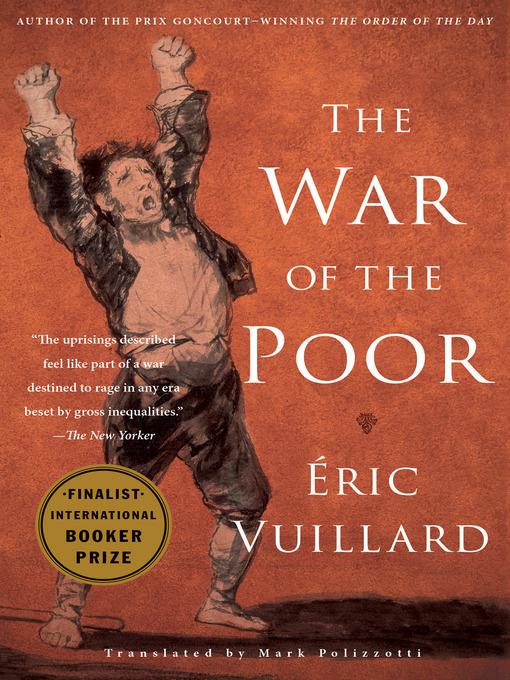
The War of the Poor
کتاب های مرتبط
- اطلاعات
- نقد و بررسی
- دیدگاه کاربران
نقد و بررسی

August 24, 2020
Prix Goncourt winner Vuillard (The Order of the Day) revisits the 16th-century German Peasants’ War in this pithy portrait of radical reformist preacher Thomas Müntzer (c. 1489–1525). Vuillard’s dramatic rendition, nimbly translated by Polizzotti, begins shortly after Müntzer’s father was executed by a count for reasons now unknown, and tracks his rise from “street urchin of the Harz Mountains” to self-declared “destroyer of the faithless,” whose literal readings of scripture and calls for “a world without privilege, property, or government” spurred German peasants to revolt against nobles and burghers in 1524. Vuillard quotes from extant letters and sermons to convey Müntzer’s sharp-tongued revolutionary charisma (“you miserable, wretched sack of maggots,” he once called a noble who had banned German-language Masses; he also called Martin Luther, who sided with the princes against the peasants, “the easy-living flesh of Wittenberg”), and cinematically recreates the Battle of Frankenhausen, when Müntzer and his “band of vagabonds” were routed by “several thousand well-armed, battle-hardened men.” (Vuillard disputes accounts that Müntzer fled the battle and hid before he was captured, tortured, and beheaded.) This unique and provocative account brings the chaos of the Reformation to vibrant life, reminding readers that “quarrels about the Beyond have to do with the world here-below.”

September 1, 2020
A slender, vivid history of a 16th-century populist revolt that holds relevance for current times. In his latest, Vuillard, the winner of the 2017 Prix Goncourt for The Order of the Day, follows Thomas M�nzter (c. 1489-1525), a zealous German preacher "who rejected the debates among learned theologians; esotericism made him sick. He appealed to public opinion." Throughout this brief but powerful, moving book, the author clearly and poetically demonstrates M�nzter's passion for reform. "He is enraged," writes Vuillard. "He wants the rulers' skins, he wants to sweep away the church, he wants to gut all those bastards....He wants to put an end to all that pomp and miserable circumstance. Vice and wealth devastate him; their conjunction devastates him." As the narrative progresses, the initial feeling of disjointedness morphs into a delightful thread of connection as the author pinballs around the 16th-century landscape. He chronicles the plight of the repressed serfs in Leipzig, Prague, Rome, and Avignon. Like most fanatics, M�nzter could occasionally come across as a raving lunatic, leading the poor to raise the wrath of God against the godless rulers who suppressed them. The availability of the Bible in the vernacular encouraged M�nzter to receive God's direct message through visions and dreams. People flocked to hear him conduct services in German. He rejected Thomas Aquinas and Saint Augustine in favor of Erasmus and Raymond Lully, though he eventually dismissed all theologians. In addition to his Prague Manifesto, M�nzter also wrote Protestation, which argued that "the crucial experience of humanity was suffering," the only way that one "could receive the word of God." Summoned to justify his work to the Elector of Saxony and the crown prince, he foretold the rise of the silent flocks who would destroy them. A slim book in which every word is important, one that deserves to be read multiple times.
COPYRIGHT(2020) Kirkus Reviews, ALL RIGHTS RESERVED.

























دیدگاه کاربران